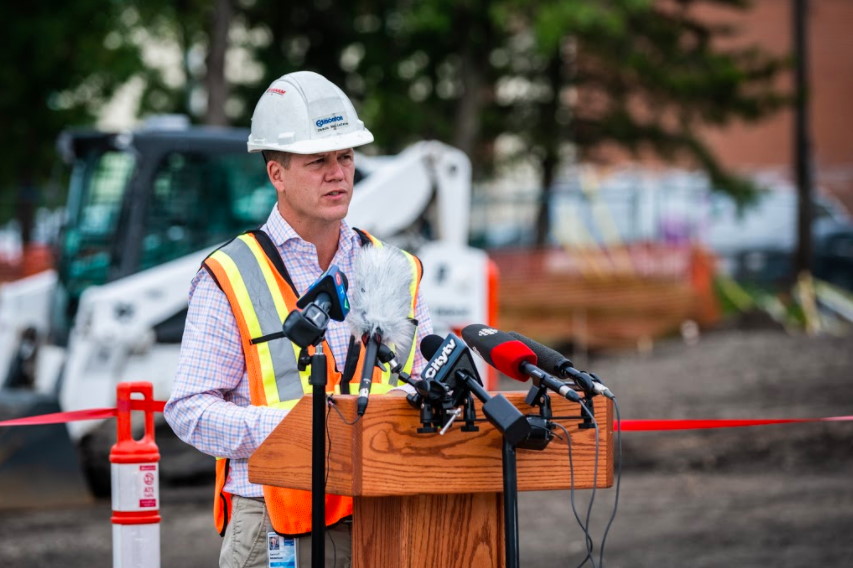
Edmonton joins movement to mourn residential school deaths
By
 Karen Unland
Karen Unland
The discovery of the remains of 215 children in an unmarked grave outside of the Kamloops Indian Residential School set off a countrywide wave of shock, grief, and calls for a fuller reckoning with Canada's long history of inhumanity toward Indigenous people.
Edmonton joined that movement. Here's a rundown of what was said over the weekend:
- The Indigenous Law Students Association at the University of Alberta organized a vigil at the legislature on Sunday, inviting participants to bring children's shoes to symbolize the lives lost.
- City Hall flags will fly at half-mast from 10 am on May 31 to 9 am on June 8, a total of 215 hours, one for every child found. City council will observe 215 seconds of silence at its next council meeting. Flags at federal buildings will also be at half-mast.
- "We have long known that thousands of children were unaccounted for, but this mass unmarked grave amounts to stark, heartbreaking and unavoidable evidence of cultural genocide," Mayor Don Iveson said, urging Edmontonians to reexamine the Truth and Reconciliation Commission's 94 Calls to Action to advance the work called for in 2015.
- Coun. Aaron Paquette called for a national day of remembrance, something more sombre than Orange Shirt Day or National Indigenous Peoples Day, which tend to focus on resilience or celebration.
- There were calls to remove the name of Bishop Vital Grandin from various landmarks, including one of Edmonton's LRT stations and neighbourhoods, given the major role he played in the creation of the residential school system and its stated purpose to separate children from their families to assimilate them. It is under discussion, Paquette tweeted. A petition to remove a mural celebrating Grandin has received renewed attention as well.
- "This tragic story is a reminder of the significance and urgency of the work that we undertake as individuals, as researchers and as universities to not only acknowledge this dark stain on Canada's history but to recognize that this history unfolds daily in current living," wrote Dr. Florence Glanfield, vice-provost of Indigenous programming and research at the University of Alberta. "The individual and communal harm that occurred in these schools affects Indigenous families and communities today through direct and intergenerational trauma."
- The Confederacy of Treaty Six First Nations called on provincial and federal governments to work with Treaty First Nations to investigate other mass graves.
More than 134 residential schools operated across Canada from 1831 to 1996, including the Edmonton (formerly Red Deer) Industrial School and the Youville Indian Residential School in St. Albert, among at least 23 others. The Truth and Reconciliation Commission has so far learned of more than 4,100 children who died from disease or accidents while attending residential schools, but many more are thought to be unaccounted for.
Photo of children's shoes set out in remembrance at the Alberta legislature on May 30. (Mack Male/Flickr)




